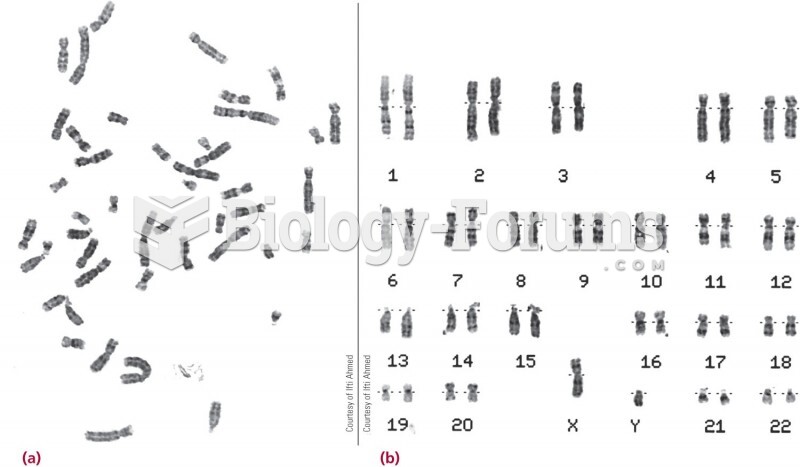|
|
|
Once thought to have neurofibromatosis, Joseph Merrick (also known as "the elephant man") is now, in retrospect, thought by clinical experts to have had Proteus syndrome. This endocrine disease causes continued and abnormal growth of the bones, muscles, skin, and so on and can become completely debilitating with severe deformities occurring anywhere on the body.
Cutaneous mucormycosis is a rare fungal infection that has been fatal in at least 29% of cases, and in as many as 83% of cases, depending on the patient's health prior to infection. It has occurred often after natural disasters such as tornados, and early treatment is essential.
If all the neurons in the human body were lined up, they would stretch more than 600 miles.
The most dangerous mercury compound, dimethyl mercury, is so toxic that even a few microliters spilled on the skin can cause death. Mercury has been shown to accumulate in higher amounts in the following types of fish than other types: swordfish, shark, mackerel, tilefish, crab, and tuna.
The U.S. Preventive Services Task Force recommends that all women age 65 years of age or older should be screened with bone densitometry.
 Typical ignition timing map developed from testing and used by the vehicle computer to provide the ...
Typical ignition timing map developed from testing and used by the vehicle computer to provide the ...
 (a) A metaphase array of chromosomes as viewed in the microscope. (b) The computer-derived karyotype
(a) A metaphase array of chromosomes as viewed in the microscope. (b) The computer-derived karyotype





